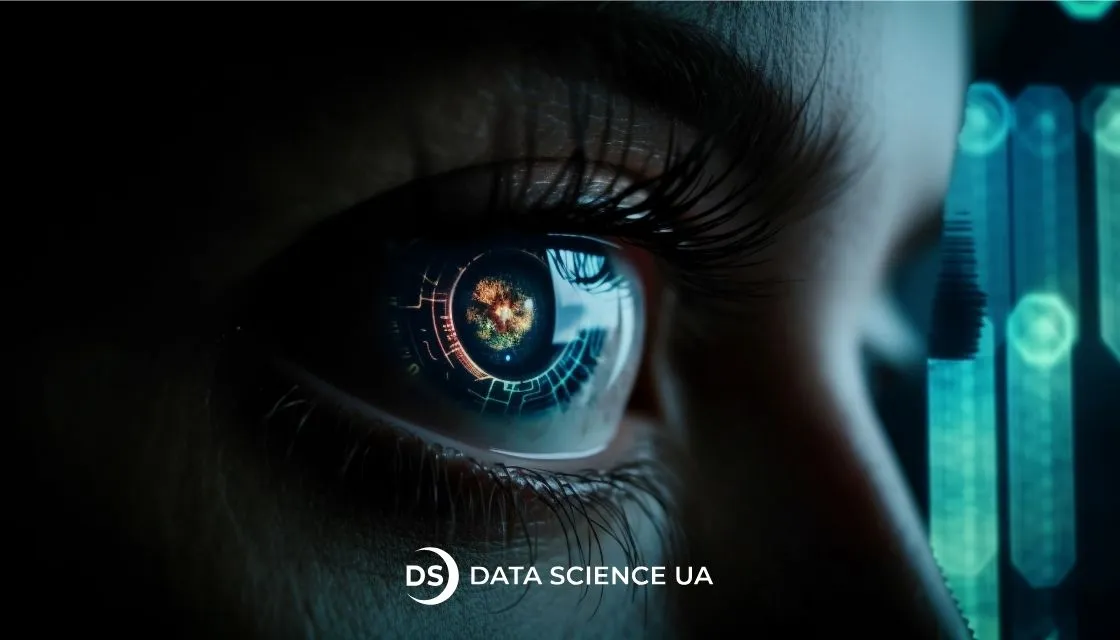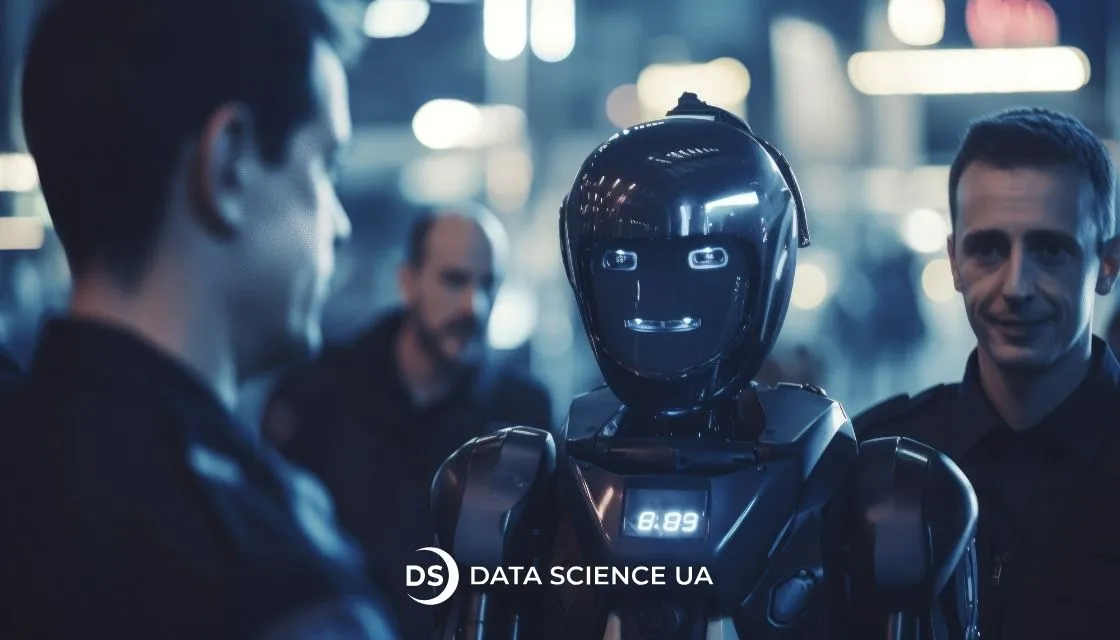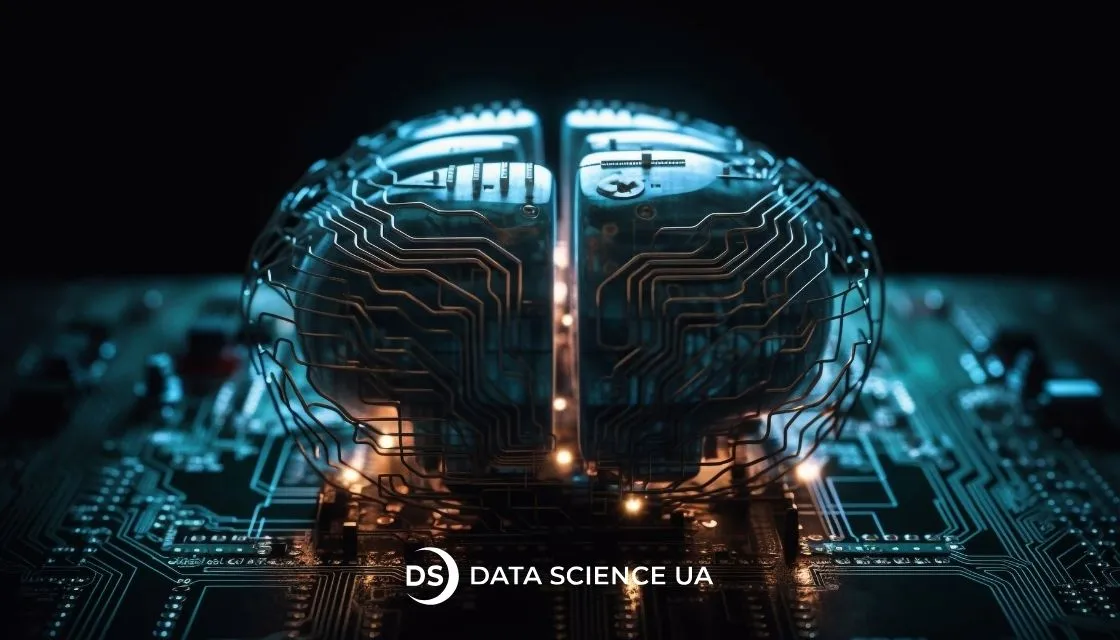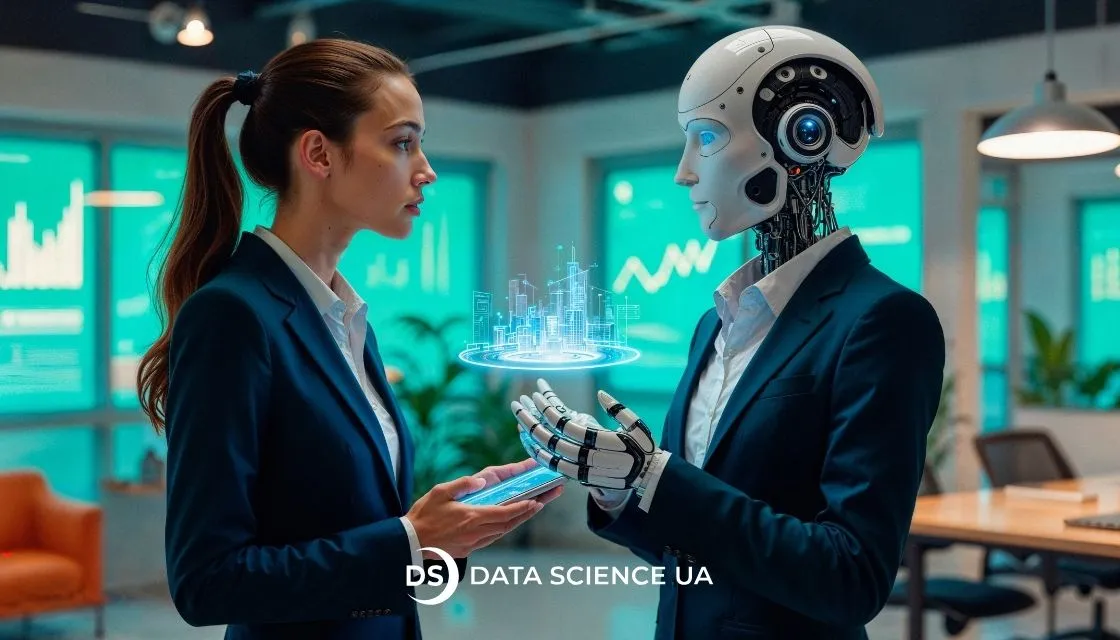The best AI business ideas for 2025 and beyond
Advancements in AI technology are expected to be truly remarkable. New technologies and increasing ML practices are making AI overhaul industries, streamline performances, and make lives more comfortable. This article explores many exciting artificial intelligence ideas, the benefits of engaging in AI business ideas, new trends, and technologies that are the future of AI.
AI influence on life and business
AI has become a part of our lives, taking over every small activity from interaction with technology to running businesses. In years the dominance of AI has spread across key sectors including healthcare finance, transportation, and entertainment companies are using AI to boost efficiency, streamline processes, and improve customer satisfaction. Companies like Amazon use AI algorithms to analyze consumers’ behavior and recommend products that will increase sales and keep the customer active.
Moreover, AI startup ideas are rearranging the fabric of the workforce: many organizations now use AI-driven automation of routine tasks to free their staff to focus on more strategic activities. This shift not only brings efficiency but also fosters innovation among teams. As AI continues to evolve, knowing what that might look and feel like for modern life and business is a critical adaptation to this moving landscape. For those organizations that wish to harvest the power of AI business ideas, it is worth considering AI software development services for the creation of know-how necessary for effective solution provision. to develop the required know-how for effective solution provision.
 Image from Pexels (source)
Image from Pexels (source)
Benefits of working on AI-based projects
The benefits of artificial intelligence business ideas are manifold and, hence very attractive to invest in and explore. Here are some of the main benefits:
- Enhanced productivity: It occurs when AI automates dull and repetitive tasks, allowing employees to dedicate their time to creativity and term strategic thinking instead of routine workloads.
- Better decision making: data analytics services and solutions provide real-time insights into how business operates and hence data-driven decisions. For example, predictive analytics could help organizations in sales trends, optimize inventories, and personalize marketing.
- Better customer experience: AI-driven technologies allow for the personalization of customer touchpoints, hence improving customer experience. Netflix uses AI algorithms to learn the patterns of watching shows and recommend content that aligns with individual tastes, increasing user engagement.
- Savings in costs: In the long-term benefits, using AI to cut expenses through streamlining operations and reducing mistakes within an organization is substantial. AI-driven predictive maintenance enables manufacturers to identify equipment problems in advance thus preventing downtimes. Investment in AI startup ideas provides an edge for businesses by enabling them to innovate and surpass their competitors effectively using AI technologies to uncover possibilities and elevate the quality of products and services while boosting overall performance.
- Competitive advantage: Companies that invest in AI startup ideas get a better position to innovate and outcompete their rivals. Powering business with AI agent development agency means finding new opportunities, enhancing products and services, and improving overall performance.
For more info on how artificial intelligence business ideas can help your business thrive, check out AI consulting services.
AI market trends and opportunities in 2025

Artificial intelligence market trends from 2020-2030
- Generative AI expansion – AI-powered content creation, from text to video, is becoming mainstream, with enterprises leveraging it for marketing, customer service, and software development. Gartner predicts that by 2026, over 80% of enterprises will use generative AI in some shape or form.
- AI in cybersecurity – Newer cyber threats are expected to be detected and prevented by AI-driven security solutions in real-time, reducing financial and data losses. AI-driven security systems are predicted to reduce cybersecurity breaches by 30% by 2025 (Deloitte Insights).
- AI for sustainable development – Companies are investing in AI-driven solutions for energy optimization, reducing carbon footprints, and making supply chains more sustainable. A recent PwC report estimates that AI can potentially reduce global emissions by up to 4% by 2030.
- AI-driven personalization – Retail, healthcare, and finance are leading the way in embracing outsource image processing services. AI-based recommendation engines can be expected to increase customer engagement and conversion rates by up to 25% (McKinsey & Company).
- Regulatory and ethical AI compliance – Governments worldwide are tightening AI regulations to foster transparency, fairness, and ethical use. In 2025, compliance with AI governance frameworks will be a top priority for organizations looking to scale AI adoption.
Hot topics in the field of Artificial Intelligence
Through the constant revolution in AI business ideas, some trending topics have come to shape the industry, including:
- Explainable AI (XAI): The increased complexity of AI systems leads to the need for transparency in the decision-making processes of these systems. Explainable AI works with the ability of AI decisions to be understandable by users in building trust and accountability.
- AI ethics: The ethical dimensions of AI technologies are reaching a critical mass. Discussions on algorithmic bias, data privacy, and potential job displacement suggest very important questions about responsible AI development and deployment.
- Federated learning: A recent approach for training AI models on multiple devices without actually sharing sensitive data. It addresses both privacy and security, hence enabling collaborative learning.
- Artificial Intelligence in the healthcare industry; AI business ideas are now commonly utilized within the field of healthcare for tasks such as analyzing diagnoses and providing recommendations, for treatment options to patients in need of assistance.
- Climate change: artificial intelligence business opportunities have been put to work in the service of climate change. This ranges from efficient use of energy, prediction of change, and environmental changes with AI technologies playing a major role in developing sustainable solutions.
Basic concepts in AI development
Understanding ai ideas for business requires learning about several key concepts that form the foundation for the creation and development of AI.
Understanding perception in AI
Perception forms such a vital paradigm of AI, through which systems are able to make sense of the world around them by examining input from sensory sources. Computer vision and other sensor technologies are developing in this area. For example, autonomous vehicles use perception systems for navigation in a complex environment by analyzing data from cameras, LIDAR, and radar.
The role of learning algorithms
Learning algorithms are the backbone of AI; these algorithms enable machines to learn from data and find patterns within them for predictions. Generally, various types of learning exist, including:
- Supervised Learning: It consists of the training of a model on labeled data to subsequently make predictions based on input-output pairs. Applications where it is typically used include image classification and spam detection.
- Unsupervised Learning: This learning process lets models learn from unlabeled data to uncover hidden patterns themselves. Examples include methods like clustering and reducing dimensionality. For more info on it, refer to ML development services.
- Reinforcement Learning: This refers to training agents on decision-making depending on rewarding or penalizing the agent based on whether the action taken was correct.
 Image from Pexels (source)
Image from Pexels (source)
Enhancing natural interactions
The state-of-the-art in the development of AI lies in the area of natural interaction between humans and machines. This interaction has become much easier due to speech recognition, NLP, and gesture recognition systems. Virtual helpers, like Siri and Google Assistant, utilize NLP services to comprehend the user’s questions and provide responses in language.
Assessing the social effects of artificial intelligence
The effects of AI technology in society become more critical to evaluate. Researchers and developers need to consider job loss problems, personal data protection worries, and moral issues. Working together among technologists, and policy makers. Ethicists are crucial to guarantee that AI contributes positively to society, in general.
The most advanced AI technologies today
The field of AI is rapidly growing as several modern technologies lead the pack in this space. This list includes:
- Deep Learning: A subset of ML that utilizes neural networks with many layers to model complex patterns in data. Deep learning has revolutionized fields such as CV and NLP, that power applications like image recognition and language translation.
- NLP: Through NLP, machines can understand, interpret, and generate human language. Applications such as sentiment analysis, chatbots, and language translation services are facilitated by NLP. Learn more in AI chatbot development company.
- CV: It helps computers to perceive and gain insights from visually available information, such as pictures and videos. This ranges from facial recognition applications right through to medical image analysis.
- GANs: GANs are a class of ML frameworks that generate new data samples by pitting two neural networks against each other. They have been used to create realistic images, videos, and even art.
- Reinforcement Learning: This method, as previously mentioned, enables agents to acquire behaviors that are optimal by trial and error. This has many applications in robotics, games, and independent systems.
What are the latest capabilities of AI?
AI keeps on evolving, and its capabilities are also fast expanding. Some of the latest capabilities of AI include:
- Image and Speech Recognition: Presently, AI systems can also spot objects in images and transcribe spoken language with high accuracy. Technologies such as facial recognition and voice assistants are finding a place in everyday living.
- The Automation of Content Creation: AI is capable of text, music, and art creation that challenges even the very definition of creativity. For example, the Open AI GPT 5 has shown the capability to produce text that resembles writing effectively making it useful, for tasks, like generating content and nurturing creativity.
- Predictive Analytics: Utilizing analytics entails employing intelligence to forecast trends and behaviors by analyzing extensive datasets, which companies leverage for tasks ranging from inventory management, to anticipating customer actions.
- Personalization Engines: It is widely used across streaming platforms and online stores as, on social networking sites to improve the user experience.
- AI in robotics: The use of intelligence in robotics is becoming prevalent across sectors such as manufacturing and healthcare where advanced robots are capable of carrying out intricate operations and adjusting to different settings while also being able to acquire knowledge through experience.
Exceptional AI achievements to date
The journey of AI has been graced with remarkable achievements that show the future of AI:
- AlphaGo: Developed by Google’s DeepMind, this breakthrough made the headlines of defeating a world champion in the notorious board game Go. This demonstrated the power of reinforcement learning and deep neural networks.
- IBM Watson: While it is most well-known due to Jeopardy!, IBM Watson transformed industries by offering data analysis and decision support in healthcare, finance, and customer service.
- Self-Driving Cars: Companies like Tesla and Waymo pioneer autonomous vehicle technology. These demonstrative companies showcase AI’s potential to revolutionize transportation and improve road safety.
- AI in Healthcare: Various AI systems support the diagnosis, treatment suggestion, and monitoring of a patient. In this regard, AI algorithms are put to use in image analysis and predicting outcomes of patients.
- Language Translation: Many such tools, like Google Translate, have been enhanced through AI by enabling real-time translation of many languages, thus improving communication across the world.
 Image from Pexels (source)
Image from Pexels (source)
AI project ideas by industry: Realizing business potential
As technology continues to advance, businesses from various industries are looking to unlock the potential of AI in making their processes more efficient, well-informed decisions, and customer experience automation. Yet, most companies are stuck on whether and how to begin leveraging AI. Below are some critical AI uses by industry, with practical examples and expert advice to take you to the next step.
Healthcare: AI for diagnosis and monitoring
AI is transforming medicine by allowing doctors to diagnose more quickly and accurately, predictive analytics, and monitoring patients remotely. IBM Watson Health, for instance, is already assisting doctors in reviewing complex medical data for better patient outcomes. McKinsey suggests that AI-driven diagnostics can lower healthcare costs by 30% with increased accuracy. Find more on how AI is transforming the healthcare industry in our in-depth guide: AI in Healthcare Use Cases.
Finance: Predictive models and fraud detection
Banks are using AI to spot suspect transactions, create market predictions, and automatically do risk assessments. PayPal and Mastercard are among the businesses that use machine learning technology to detect suspect patterns in real–time, stopping billions of dollars in fraud each year. Deloitte says finance AI can boost fraud detection by 90% and minimize false positives. Read the latest AI financial news in our report: Machine Learning in Finance. As an idea, you can create AI models that predict stock prices or market trends based on historical data and various indicators. This project is ideal for those interested in finance and data analysis. Exploring techniques like time series analysis and regression can enhance your understanding of financial markets.
Agriculture: Precision farming solutions
Artificial intelligence solutions are maximizing crop yield, minimizing wastage, and enhancing farm sustainability. John Deere‘s AI-driven smart tractors and drones track the health of the soil and weather, enabling farmers to make data-driven decisions. Research has indicated that AI has the ability to boost farm productivity by 20-30%. You can implement AI solutions that analyze agricultural data to improve crop yields and resource management. You will be able to help farmers in decision-making by monitoring environmental conditions and crop performances. Discover how AI is transforming agriculture in our comprehensive report: benefits of Machine Learning in agriculture.
Retail and eCommerce: Personalization and inventory management
Retailers are leveraging AI to provide richer customer experiences in the form of personal recommendations and intelligent inventory management. Amazon‘s AI-driven recommendation engine generates more than 35% of its revenue, while Walmart employs machine learning for supply chain optimization. AI-driven analytics can boost conversion rates by up to 20%. Learn how AI is ready to revolutionize your retail business: Machine Learning retail solutions.
Transportation: Autonomous systems and logistics
AI is changing transportation with self-driving automobiles, predictive maintenance, and logistics optimization. Autonomy technology by Tesla and AI-powered route optimization at Uber are changing mobility, decreasing congestion, and enhancing safety. AI-powered logistics will lower the cost of delivery by 15-25%, studies indicate. Learn how AI is changing transport in our latest article: Machine Learning in automotive industry.
Beginner-friendly AI project ideas
For those new to AI, starting with manageable projects can build foundational skills. Here are some beginner-friendly AI product ideas to consider:
Analyzing product review sentiments
Creating a sentiment analyzer to review customer reviews and classify those like positive, negative, and neutral. This project will let the businesses understand the customers’ perception of their products. You can make use of the library such as NLTK or TextBlob in analyzing text data and getting important insights into consumer feedback.
Recognizing handwritten numbers
Create a network that can identify handwritten numbers by utilizing the MNIST dataset—a timeless assignment that dives into the fundamentals of both machine learning and image processing techniques. You’ll dive into data preparation techniques, model design considerations, and performance evaluation metrics while training a model, with this dataset.
Building chatbots for customer support
Create a chatbot that can answer frequently asked questions and assist customers. This project will introduce you to NLP and the basics of conversational AI. You can use platforms like Dialogflow or Microsoft Bot Framework to streamline the development process and deploy your chatbot on various channels.
Developing a face detection system
Work on a face detection system using libraries of computer vision that can find and recognize faces from images or video streams. This project will be a great enhancement to your skills in both image processing and machine learning. You’d get to learn how to perform real-time face detection by playing with Haar cascades or deep learning models.
Implementing language translators
Develop a simple language translator that uses a machine learning model to translate text across various languages. This will provide you with a better understanding of the challenges faced in NLP and translation. You might want to look into pre-trained models such as Google’s Transformer or Facebook’s BART for effective translation.
Recommender systems for movies
Collaborative filtering techniques can be applied to a movie recommendation system. The project would more suitably explain how AI may analyze user preferences to suggest related content. You will be able to make recommendations on movies based on past behavior by making use of user data and item features.
Recognizing traffic signs with AI
Design a model that will be able to identify and classify traffic signs through the use of computer vision. The project is important and related, especially for the person concerned with autonomous vehicle technologies. You can also make use of the datasets like GTSRB to train your model.
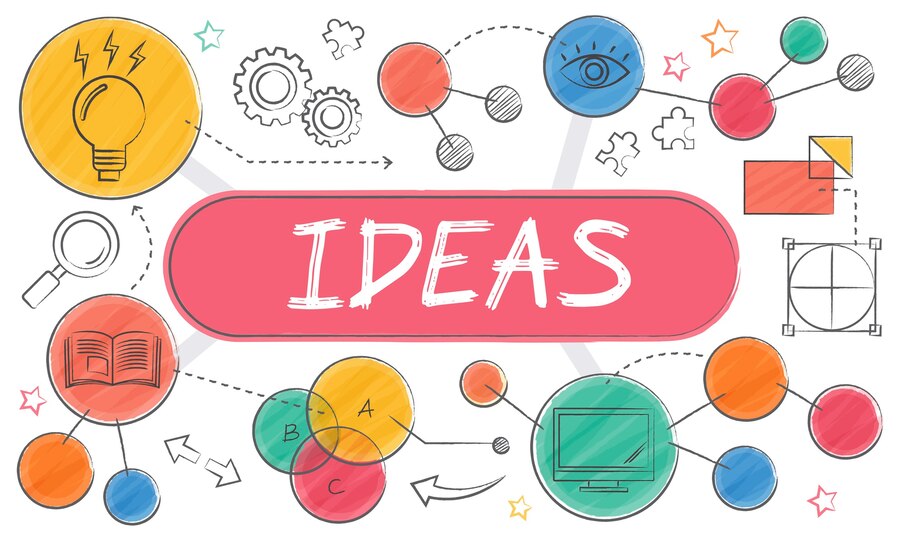 Image from Pexels (source)
Image from Pexels (source)
AI projects for intermediate developers
Once you’ve gained some experience, here are some intermediate-level artificial intelligence ideas to try out:
Sentiment analysis of social media content
Analyze social media posts to determine the general sentiment of the public on an issue. One such project will let you learn about data scraping, sentiment analysis, and the dynamics of social media influencing public opinion. You will need Twitter API and other libraries dealing with Sentiment Analysis for this project.
Creating image classification models
Develop a model that can classify images into distinct categories such as animals, vehicles, or landscapes. This project helps improve your knowledge in deep learning and computer vision. Using pre-trained models such as ResNet or VGG16 will help speed up your development process.
Designing predictive maintenance systems
Create an AI-based system for predicting equipment failure based on historic data and sensor readings. This project can be of extreme value in manufacturing or energy industries. You can extract patterns from the data to create models that reduce downtime and optimize maintenance schedules.
Advanced AI project ideas
Voice assistants are becoming an essential part of daily life, and to move ahead in this regard, systems should be developed that understand the queries of the users and respond accordingly.
For those looking to push their skills further, consider these advanced project ideas, which could be among the upcoming AI projects to watch:
Building autonomous vehicle systems
Build an AI capable of providing a vehicle with autonomous navigation capabilities. The project requires complex algorithms at the level of perception, decision-making, and control. Testing and development can be simulated using environments such as CARLA or ROS.
Creating conversational AI tools
Design complex conversational agents that are able to conduct multi-turn dialogues. This project will deepen your comprehension of NLP and machine learning. You can design advanced dialogue systems by using frameworks such as Rasa or Microsoft Bot Framework.
Real-time sports performance analytics
Develop a system that can track the performance of athletes in real time to provide insight into and recommendations on how to improve. This project combines AI with sports science and performance metrics. You can collect data through wearable devices and provide personalized training regimens.
Intelligent surveillance with anomaly detection
Build advanced surveillance systems that utilize AI anomaly detection, facial recognition, and real-time alerting. The project will make a difference in enhancing the security of environment-related spaces. You can develop safety improvement systems using CV combined with machine learning startup ideas.
Careers in AI: How to get started
A career in AI requires both a technical component and an understanding of the domain. Here are some considerations for getting started:
- Education: Pursue related degrees or certifications in computer science, data science, or related fields. Websites such as Coursera and edX host courses from leading institutions of higher learning.
- Practical Exposure: Create projects for a portfolio of experience. Contributing to open-source projects or participating in hackathons offers excellent exposure to the field.
- Networking: Join AI communities, conferences, and other events where meeting professionals in the field is possible. Engaging with others offers collaboration opportunities and insight into industry trends.
- Keep Your Knowledge Up to Date: AI is one of the fastest-developing areas. It’s very important to be on top of recent events, technologies, and research. Regularly update your knowledge with relevant publications, blogs, and online courses.
Common reasons AI projects fail
Even with the hype around technology, most AI product ideas go through certain difficulties which could lead to disaster. Here are some common reasons:
- Lack of clear objectives: Projects without clearly defined objectives face difficulty in delivering value. Setting clear, measurable objectives from the very beginning can help direct the development process.
- Poor data quality: Inaccurate or insufficient data can hinder model performance. Implementing robust data governance practices and ensuring data quality is essential for successful AI projects.
- Ignoring user needs: Solutions without consideration for the needs of end-users may just not resonate with the intended audience. Conducting user research and testing will make sure the AI solution will perform as expected.
A beginner’s guide to starting AI projects
Starting an AI project need not be challenging. It can be simplified by adopting a structured approach, as discussed below. Here is the beginner’s guide:
Focusing on your objectives
Clearly define the goals of the AI project. Understanding what you intend to get with the AI project will, in turn, guide the development process and aid in measuring success. It is vital to set specific, measurable, achievable, relevant, and time-bound objectives for clarity.
Building an Effective Team
A cross-functional team comprising experts in data science, software engineering, and domain expertise must be formed; different skill sets are required because AI projects are multivariate in nature. Collaboration, therefore, becomes crucial. Share knowledge openly with team members.
Data collection strategies
Employ mature data collection strategies to ensure that you have high-quality data to train your models. This may involve web scraping data, using open datasets, or conducting surveys. Understanding the data landscape is very crucial for successful AI implementations.
Model training and evaluation
Invest time in training models and evaluating their performance with real metrics. Continuously iterate the model based on feedback and performance results. Cross-validation and hyperparameter tuning are a couple of techniques that could boost model accuracy.
 Image from Pexels (source)
Image from Pexels (source)
Estimating the cost of AI development
The financial foundation of any AI project should be understood for planning and budgeting. Certain variables affect costs, including:
Project scope: The complexity and size of the project will have great impacts on costs. Larger projects may demand greater resource utilization and time.
Talent acquisition: Hiring expert professionals will generally pose serious effects on the budget. Consider the expertise required and recruitment costs.
Infrastructure: Hardware and software resource costs need to be considered in the budget. Cloud computing is an option for AI projects, which can bring flexibility and scalability. For a detailed breakdown of costs, refer to our guide on how much does AI cost.
Success stories of AI projects
AI is already reaping sectors, bringing concrete benefits across the board:
- Healthcare: Diagnostic error has fallen greatly with analysis by AI of images, e.g., in the adoption by Mayo Clinic of deep learning by radiology.
- Finance: Legal document reading has gone from taking 360,000 hours of processing time down to seconds on the COiN platform used by JP Morgan that employs AI.
- Retail: Personalized recommendations by Sephora‘s AI-powered chatbot help lift customer interaction and sales.
- Manufacturing: Siemens employs AI to perform predictive maintenance, cutting downtime by 50% and saving tens of millions of dollars every year.
If you would like to learn how AI can deliver valuable benefits to your company, our experts are here to walk you through successful implementation.
Start your AI project today
AI business to start demands experience, preparation, and smooth execution. Data Science UA offers end-to-end AI solutions to your business requirements. With 8+ years of experience, 80+ AI engineers, and successful implementations in fintech, healthcare, retail, and other industries, we assist businesses in using AI for growth and efficiency.
How we can help:
- AI Strategy & Consulting – Struggling to start? We set up your artificial intelligence startup ideas, and then craft a plan to integrated AI success.
- Custom AI Model Development – From AI finance to retail experience as a persona, we develop machine learning models specifically tailored for your application.
- Smooth AI Implementation – Not concerned about integrating AI into the current environment? We assist you with unflawed implantation that is not annoying at all to adapt to.
- Continuous Support & Optimization – Your AI should always be updated, and ours is no different. We provide regular support to keep your AI models updated and optimized.
Avoid letting complexity block the path of AI—translate challenges into opportunities with our master solutions. Get in touch with us today and begin your journey with AI on a confident note!
Final thoughts
With 2025 just around the corner, the ability of AI business ideas to transform industries is endless. In-depth, innovative project ideas coupled with the power of behind-the-scenes technologies are definitely instruments that businesses and people can use to enable growth and transformation. If you’re a complete beginner or an experienced developer, your journey into AI is endless, with exciting artificial intelligence ideas for future. These emerging opportunities can spur significant gains in productivity, innovation, and overall success in a rapidly changing world.
FAQ
How does AI tackle global problems?
AI solves global issues in healthcare, climate change, education, and beyond. For example, AI can optimize resource distribution for humanitarian relief or analyze medical data to fight off diseases. In addition, AI-driven analytics can enable organizations to make insights-driven decisions impacting societal challenges.
Which programming languages are best for AI?
Python is considered to be the best language in AI because of its simplicity and availability of vast libraries. This makes it very easy to implement machine learning algorithms with libraries like TensorFlow, Keras, and PyTorch. Other major languages are R, Java, and C++, each suited for different applications and usages related to AI projects.
What challenges can emerge in AI projects, and how to tackle them?
The main challenges of AI projects are related to data quality, algorithmic bias, and integration. Work out problems like robust data governance, ethical AI practices, and cross-functional teams for development. Perform regular testing and validation of models against diverse datasets to reduce bias and increase performance.
It means that through these emerging thoughts, and within the intricacies of AI, you can position yourself or your business at the leading edge of technology. The future in AI is incredibly promising, and in turn, those who participate in and respond to such development will be better prepared for an AI-dominated future.


